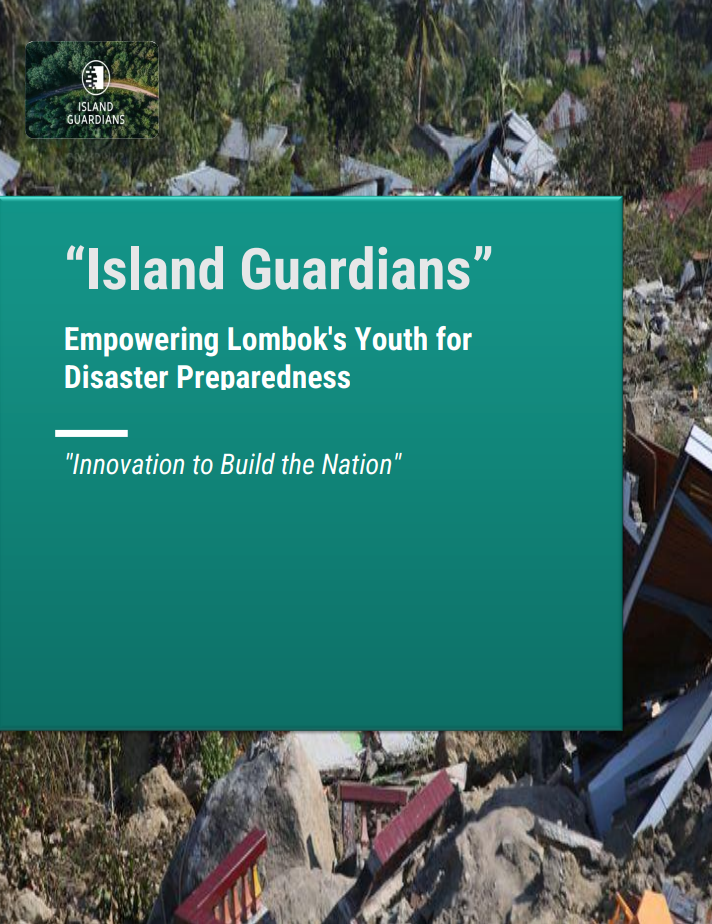Our Motivation:
When we first found out about the Geneva Challenge 2024, we thought that this was a great chance to apply what we had learned in LKYSPP classes and come up with practical solutions for real-world problems. Although all of us have experience working for government agencies in our home countries, we thought that as graduate students with diverse backgrounds and experiences, collaborating on practical solutions will yield novel insights and approaches. The proposed projects for the Geneva Challenge last year were innovative and fascinating as they were based on the analysis connecting personal experiences with practical research. Since several of them were eventually implemented in the targeted countries, this inspired us to participate in this impactful initiative.
 The Process of Building Our Ideas:
The Process of Building Our Ideas:
We decided to write about disaster preparedness in Lombok after being inspired by our experience participating in the LKYSPP-in-ASIA programme, which took place last year in the same place - Lombok, Indonesia. As part of the programme, we visited several primary schools that had experienced a devastating earthquake in July 2018 measuring nearly 7.0 on the Richter scale. We also heard directly from the local people about their experiences then, and about their current concerns. During this process, we learnt that young people, especially children, were most affected by natural disasters such as these, due to great damage to their school premises, and suffered from mental and physical health.
Coincidentally, two of our group members are from Japan, whose country has experienced massive earthquakes, and has in turn, implemented policies to mitigate the impact of and recover from earthquakes. We felt that Japan’s approach to earthquake preparedness, such as evacuation drills at school, and disaster countermeasures by local and central governments, could be applied to Lombok. Taking into account the significant differences between Lombok and Japan, including variations in governmental structures, resources, and cultural contexts, we conducted literature research in Lombok to deepen our understanding of its local community and cultural landscape.
We also interviewed a local government representative, a key stakeholder in our project, to gain insights into the current challenges facing disaster preparedness in Lombok. Through these research and engagement processes, we then evaluated how our knowledge and experiences could be adapted to address Lombok’s unique challenges. We also noted the critical importance of nuanced, context-specific understanding in designing effective and feasible disaster preparedness projects.
Key Takeaways from participating in the Geneva Challenge 2024:
Through this project, we were reminded that to effectively address public policy issues, more than just theoretical knowledge and quantitative data analysis is required. It necessitates developing solutions that are deeply informed by the voices, concerns, and specific circumstances of the communities affected. Rather than the sole reliance on abstract frameworks, we must design ideas that were relevant and responsive to the lived experiences of those impacted by these policies.
Although we were in the initial stages of formulating our ideas, we recognised the critical importance of planning for effective implementation. In order for our concepts to be translated into meaningful impact, we understood the need for continued collaborations with key stakeholders and local counterparts, which included factoring practical constraints, such as resource limitations, logistical challenges, and timelines, which could significantly influence the feasibility of our proposals.
Last but not least, we were honored to have been selected as semi-finalists from among 90 teams worldwide by the Geneva Graduate Institute. This had strongly encouraged us to continue building on this invaluable experience as we pursue our studies at LKYSPP, and apply these insights to our future careers.

Read the team's full proposal
here.